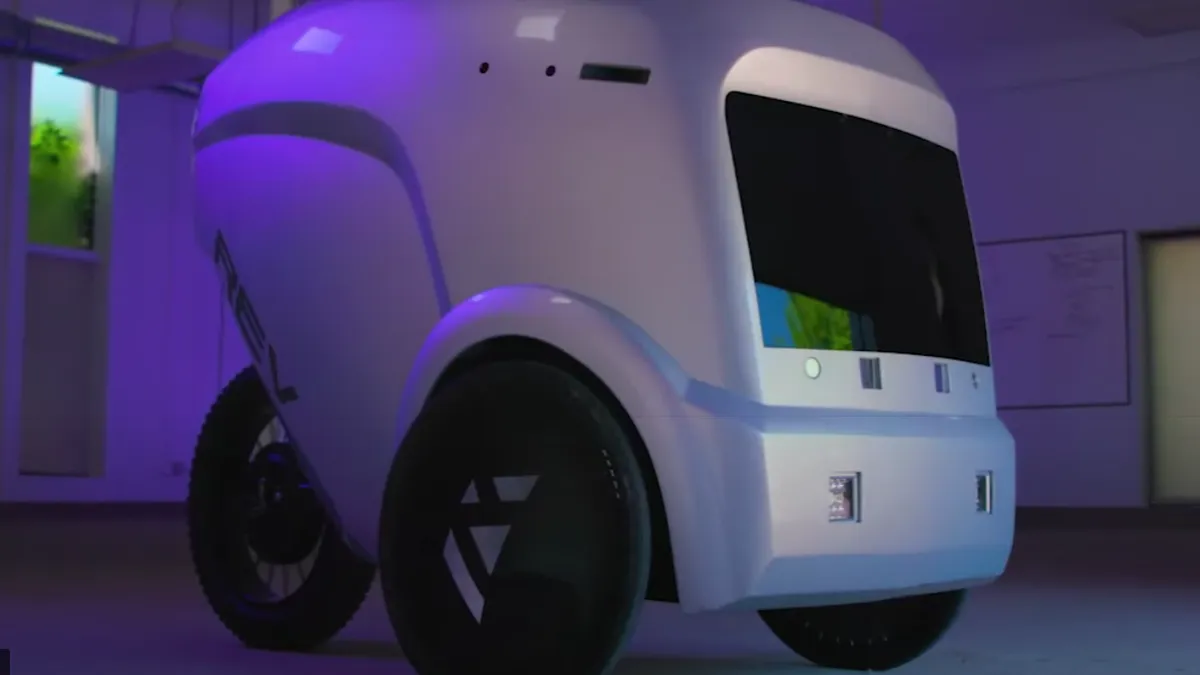Dive Brief:
- Two Chick-fil-A restaurants in Austin, Texas, will test Refraction AI’s self-driving vehicles for delivery, Refraction AI announced on Tuesday.
- Refraction offers a robot-as-a-service platform that includes self-driving technology, tele-operations and a delivery robot that uses the bike line or the margin of the road while traveling.
- Three Chick-fil-A locations in Santa Monica, California, previously tested robot delivery in 2021 through a partnership with Kiwibot.
Dive Insight:
Chick-fil-A is one of a growing list of restaurants and restaurant-adjacent companies, including El Pollo Loco, Chili’s and C3, that have been testing technology like drones and bots to lower the cost of delivery fulfillment. Food delivery robots have gained a foothold across college campuses, but are becoming popular outside university settings, especially as the labor shortage drags on.
"Autonomous delivery using Refraction's robots creates an exciting new opportunity to extend the Chick-fil-A experience to a growing number of delivery guests," said Luke Steigmeyer, operator of the first Austin Chick-fil-A to test Refraction’s technology. "The platform will allow us to provide fast, high quality, and cost-effective meal delivery within a mile radius of our restaurant.”
Autonomous technology could become increasingly important to curb costs if Chick-fil-A scales its delivery channel. The chain launched three virtual concepts in Nashville last fall, initially using self-delivery to offer these brands within 10 minutes of its delivery-only facility. As of last year, Chick-fil-A paid its delivery drivers $11 per hour plus 100% of tips.
Refraction’s robots could provide an advantage over bots like Kiwibot and Starship, which are smaller and tend to drive only on sidewalks. Refraction’s bots are bigger, faster and can reach larger suburban areas. They also can navigate through harsh weather conditions, according to the company’s website. These bots are 30 inches wide, can carry about six grocery bags and can travel 15 miles per hour, according to Eater. By traveling on the street instead of the sidewalk, Refraction's bots also avoid the regulatory constraints sidewalk-roving robots face, according to Refractions' press release.
During Refraction's initial tests of the technology in Ann Arbor, Michigan, which began in 2019, the machines spanned a radius of 3.5 miles. Restaurant delivery was the focus of the initial test, but Refraction has since expanded into grocery and retail delivery.










